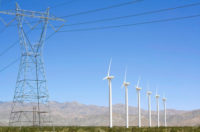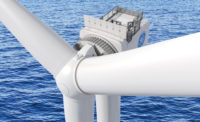After years of drought-generated water shortages, Israel now is in the enviable position of having a surplus of supply thanks to massive investment in desalination and wastewater reuse over the past decade. Earlier this month in Tel Aviv, a biennial global megaconference, which attracted at least 25,000 international attendees, gave the country a platform to expand its expertise to other locales and new for-profit ventures.
Israel now supplies 80% of its drinking-water needs from five large desalination plants along its Mediterranean coast. In addition, some 85% of its municipal wastewater is recycled and used in agriculture. “The successful handling of our water crisis allows us to offer the most advanced solutions ... in the world,” Oded Distel, director of the economy ministry’s Israel New Tech unit, told attendees at the WATEC event, held Oct. 13-15.
The big winners, so far, have been companies such as IDE Technologies, which is a major player in two desal projects in California, now facing its worst water crisis. There are 17 proposals for building desal plants along California’s coast, “although it is not clear yet how many of these projects will … move forward,” said Ron Yachini, vice president of business development. Other states, including Arizona, New Mexico and Texas, also are considering the technology.
“In the next five to 10 years, the growing shortage of water will lead to an explosion in demand for seawater and brackish [water] desalination plants,” predicts Avraham Tenne, outgoing director of desalination at the Israel Water Authority and now an independent consultant. He expects the U.S., China and India to be the major markets in the coming years. “Israel has already learned how to deal with its water crisis, and we hope to take its experience and implement it in California,” said Richard Bloom, a key state legislator on water issues, who addressed WATEC. He told Israeli media that Israel and state officials are developing strategies under a 2013 agreement.
While not part of WATEC, about 100 entrepreneurs, investors and policymakers attended the launch of the Israel- California Green Tech Partnership, held on Oct. 14 at the Tel Aviv offices of software giant Google. The initiative will link Californian and Israeli startup firms that specialize in water and energy technologies, according to The Jerusalem Post. While Google is not directly involved in the alliance, one of its design and construction managers is a steering committee member, said the newspaper.
Israel’s largest municipal water utility, Jerusalem’s Gihon, has served in recent years as a testing ground for a number of local startups in leakage prevention technology. Among the companies, Gihon has teamed up with TaKaDu, the Jerusalem-based developer of water-monitoring software that links up with existing sensors. The firm, which counts ABB and 3M among its investors, has sold its software solution to 14 water utilities in Brazil, Spain and Australia that, collectively, manage 40,000 miles of water pipelines.
Israel’s national water company, Mekorot, is working with 17 local start-ups, “and the number will increase to 23 next year,” said Yossi Yaacoby, director of its WaTec division. Aquarius Spectrum, an Israeli firm that debuted its acousticsensor technology for pipeline-leak detection at the 2013 WATEC, has sensors operating in four cities that, together, monitor 1,000 kilometers of water pipes. Israeli expertise also factored into a conference focus this year on cyber security that included an Oct. 13 pact between Gihon and New York City’s Dept. of Environmental Protection to develop defenses for increasingly sophisticated systems that are more vulnerable to cyber terror, said Steven Lawitts, a deputy DEP commissioner who attended the conference. “There’s a lot we can learn from them, but also a lot they can learn from us because of the city’s size,” he added.







Post a comment to this article
Report Abusive Comment